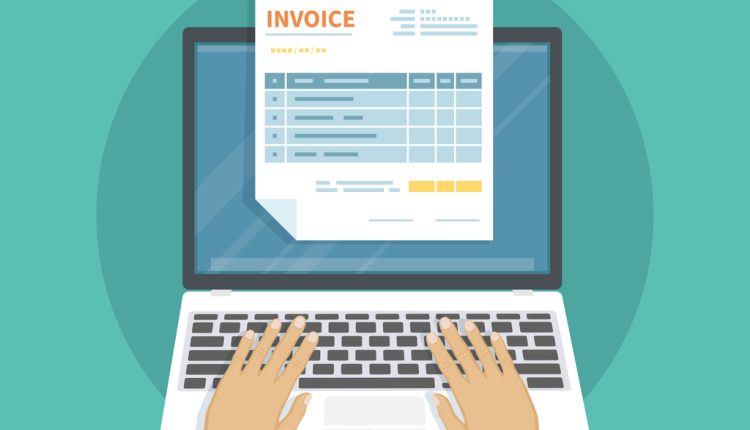Streamlining legal billing: Best practices for law firms
To keep your legal business running smoothly, ensuring an efficient billing process is important. Here are tips that can make your law firm billing process more efficient and less hectic

Every law firm relies heavily on its clientele and the invoices it raises toward them. Hence, an efficient billing process becomes an important element for running a successful legal business.
However, at times, legal billing can become challenging. Plus, when your law firm lacks a pre-defined, efficient legal billing process, problems can double up.
Fortunately, these problems can be solved. Here are a few important pointers that can help your law firm optimize its legal billing process and never miss an invoice again.
1. Use a reliable legal billing software
In simple terms, legal billing software is a specialized tool designed to assist law firms in managing and automating their billing processes. From streamlining your business’ legal time tracking system to automating invoice generation, expense management, and other financial management processes, legal billing software can do it all.
Such tools can also remind you to raise invoices timely, notifying you when a client’s billing cycle arrives.
2. Visualise the billing workflow
To improve the efficiency of billing processes, it is crucial to understand the entire billing workflow. By visualizing and breaking down the workflow into detailed steps, law firms can identify potential bottlenecks, wasted time areas, and automation opportunities.
This analysis can provide valuable insights into streamlining the billing cycle, making it more efficient and error-free. Moreover, implementing a standardised billing policy further enhances accuracy and timeliness in billing.
A clear and well-defined policy establishes billing rates, payment terms, and additional fees, minimizing billing disputes and ensuring a smoother billing process for the firm and clients.
3. Embrace new technologies
Modern technology offers a range of tools and software specifically designed for legal billing. By leveraging these resources, law firms can significantly streamline their billing procedures.
Implementing legal billing software can help automate time tracking and generate accurate invoices, also efficiently managing expenses. Additional features such as online payment portals make it easier for clients to settle bills promptly.
4. Establish clear billing policies
Transparent billing policies are crucial for effective financial management. Law firms should establish clear, well-defined billing policies outlining rates, payment terms, and additional fees and expenses.
By communicating these policies clearly to clients from the outset, law firms can minimize billing disputes and ensure a smoother billing process.
5. Implement time-tracking mechanisms
Accurate time-tracking is critical to maintaining billing accuracy within your law firm.
By adopting a reliable time-tracking system such as dedicated software solutions, attorneys and staff can effectively log their billable hours with precision. This level of accuracy can ensure that clients are billed correctly for the services provided, minimizing errors and discrepancies in the billing process.
With efficient time-tracking, law firms can enhance their billing accuracy, improve client satisfaction, and maintain a transparent and trustworthy financial management system.
6. Regularly monitor billing performance
Regularly monitoring billing performance allows for identifying areas that require improvement.
Analyzing billing data, including collection rates, billing cycle times, and outstanding accounts receivable, helps identify bottlenecks or inefficiencies in the billing process.
Taking proactive measures based on this analysis can help address issues promptly.
7. Ensure quality control measures
To minimize billing errors, it is crucial to establish robust quality control measures within law firms.
One effective approach is to assign a dedicated team or individual responsible for meticulously reviewing invoices for accuracy and completeness. By implementing these quality control measures, law firms can catch and rectify billing errors before invoices are sent to clients, thus reducing the occurrence of disputes and late payments.
This proactive approach can help improve billing accuracy, enhance client satisfaction, and maintain a strong professional reputation. Strict quality control measures can help law firms ensure smoother financial operations and build stronger client relationships.
8. Foster client communication
Maintaining open and proactive client communication is vital for a streamlined billing process. Regular updates regarding matter status, billing summaries, and anticipated cost changes build trust and transparency.
Clear and frequent communication can help reduce the likelihood of billing disputes and facilitates prompt payment.
9. Include templates and guides for staff
To streamline the firm’s billing process, providing staff with templates and guidelines can be helpful.
This can be achieved by implementing a standardized billing policy and incorporating automated invoice templates within billing software. This can help maintain consistency in your invoices, allowing clients to become familiar with your billing process.
Law firms should also maintain financial transparency, minimize errors, and foster stronger client relationships by ensuring accurate and consistent invoicing.
10. Define standard rates and billing structure
Consider legal practice type, industry standards, overhead costs, and lawyer qualifications when setting rates and fees.
The most common fee structures include hourly billing (in increments of one-tenth of an hour), flat-rate billing (set price regardless of the work involved), and contingency fees (payable upon winning the case).
Consistency in rates will also help ensure transparency and fairness, eventually nurturing the client-lawyer relationship.


